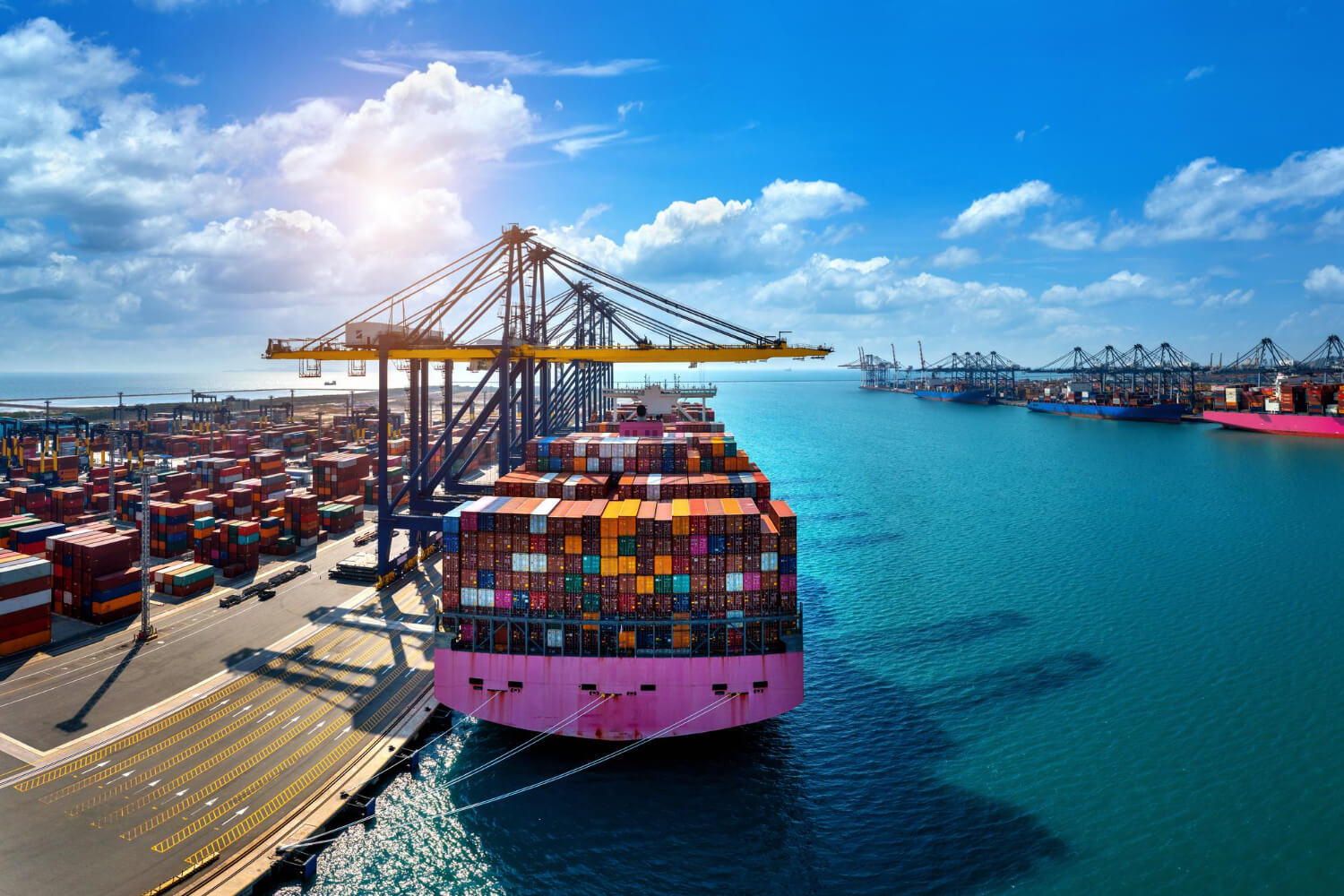
The Red Sea crisis caused by the Israel-Hamas conflict has led the maritime shipping industry to reevaluate its operations. The route through the Suez Canal and the Red Sea—a crucial route passing through the Middle East for transporting goods between Europe and Asia—are directly affected. In response to the ongoing conflict, shipping companies are adjusting their transport routes to ensure the safety and continuity of their operations.
- Concerns in Security and Disruptions in Logistics
- A Drastic Change in Procurement Strategies
- Route Disruption and Freight Cost Increase
- Conclusion
- Discover How TFI Can Help You Navigate Freight Challenges
Geopolitical tensions have the potential to significantly disrupt the stability of global supply chains. As countries navigate military standoffs, the intricate interdependence of supply chain networks becomes susceptible to disturbances. Political uncertainties can prompt sudden changes in procurement strategies, subsequently impacting the flow of goods. The repercussions of these disruptions extend beyond logistics, encompassing heightened operational costs, prolonged lead times, and an increased risk of supply chain bottlenecks. Companies must consistently evaluate geopolitical landscapes and adopt diversified sourcing strategies to mitigate the impact of such tensions.
Concerns in Security and Disruptions in Logistics
Geopolitical conflicts introduce significant security challenges throughout the supply chain network. Assets within the supply chain, including warehouses, transportation routes, and storage facilities, become susceptible to security breaches during periods of geopolitical instability. Concerns about the safety of crew members and cargo have led several shipping companies to temporarily halt shipping activities in the Red Sea. Additionally, some companies have chosen to reroute their maritime paths, circumventing the Cape of Good Hope—a considerable detour spanning thousands of kilometers—in favor of a safer route amid heightened security risks.
The economic ramifications of these security concerns extend beyond heightened insurance costs, potentially resulting in losses from damaged or stolen goods. When coupled with logistic disruptions characterized by extended lead times and increased operational costs, the economic impact intensifies. The uncertainty surrounding the movement of goods amplifies the challenges of maintaining a seamless supply chain. As security risks escalate, the economic fallout adversely affects both the operational efficiency of supply chains and the financial well-being of businesses operating in the affected region.
A Drastic Change in Procurement Strategies
Companies are compelled to reassess their sourcing strategies in reaction to the prevailing political climate. Regions that were initially considered reliable sources of raw materials may now be deemed physically unsafe due to military conflicts. Consequently, businesses must actively search for alternative suppliers and diversify their sourcing strategies.
Regrettably, the transitional phase of identifying new suppliers and evaluating the dependability of alternative sources is likely to introduce delays and uncertainties throughout the supply chain. These changes will bring forth a fresh set of challenges, impacting everything from production to procurement. In response to the uncertainties arising from political instability, businesses are urged to proactively adjust their procurement procedures to mitigate potential issues.
Route Disruption and Freight Cost Increase
Geopolitical tensions, by disrupting established trade routes, have a profound and extensive impact on global supply chains. Key strategic waterways and transit corridors, vital for the seamless flow of goods and materials, can become focal points of contention during periods of geopolitical strain. Trade routes may encounter closures, delays, or increased security measures, leading to disruptions in the movement of products between nations. Recent attacks in the Red Sea have prompted companies to rearrange their shipping schedules, with major players like Maersk temporarily suspending their ships. Disruptions in the Red Sea have consequently contributed to a notable 28% decrease in shipping volume through the Suez Canal.
Escalating geopolitical tensions may lead to the imposition of tariffs and trade barriers between conflicting nations. The heightened costs associated with international commerce can significantly impact the economics of businesses engaged in the import and export of goods. This situation necessitates a re-evaluation of pricing strategies, inevitably affecting profit margins. As a manifestation of these challenges, freight rates across the Red Sea have reportedly quadrupled, reflecting the increased logistical costs incurred by businesses.
Conclusion
The influence of geopolitical tensions on global supply chains is substantial and multifaceted. The repercussions go beyond mere logistical challenges, extending to financial implications such as heightened operational costs and adjustments in procurement strategies. Disruptions to established trade routes and changes in political alliances pose challenges to the stability of supply chains. In the face of ongoing shifts in the geopolitical landscape, companies that prioritize adaptability will find themselves better equipped to navigate the uncertainties and maintain the seamless operations of their supply chains.
Discover How TFI Can Help You Navigate Freight Challenges
Are you affected by the Red Sea crisis? We understand how this can take a huge toll on your operations and overall business. So, here at TFI, we offer a range of special freight solutions tailored to your needs and timeline.
Get in touch with our experts today, and let’s discuss how you can reach your goals in spite of the Red Sea crisis and instability in the Middle East region!



